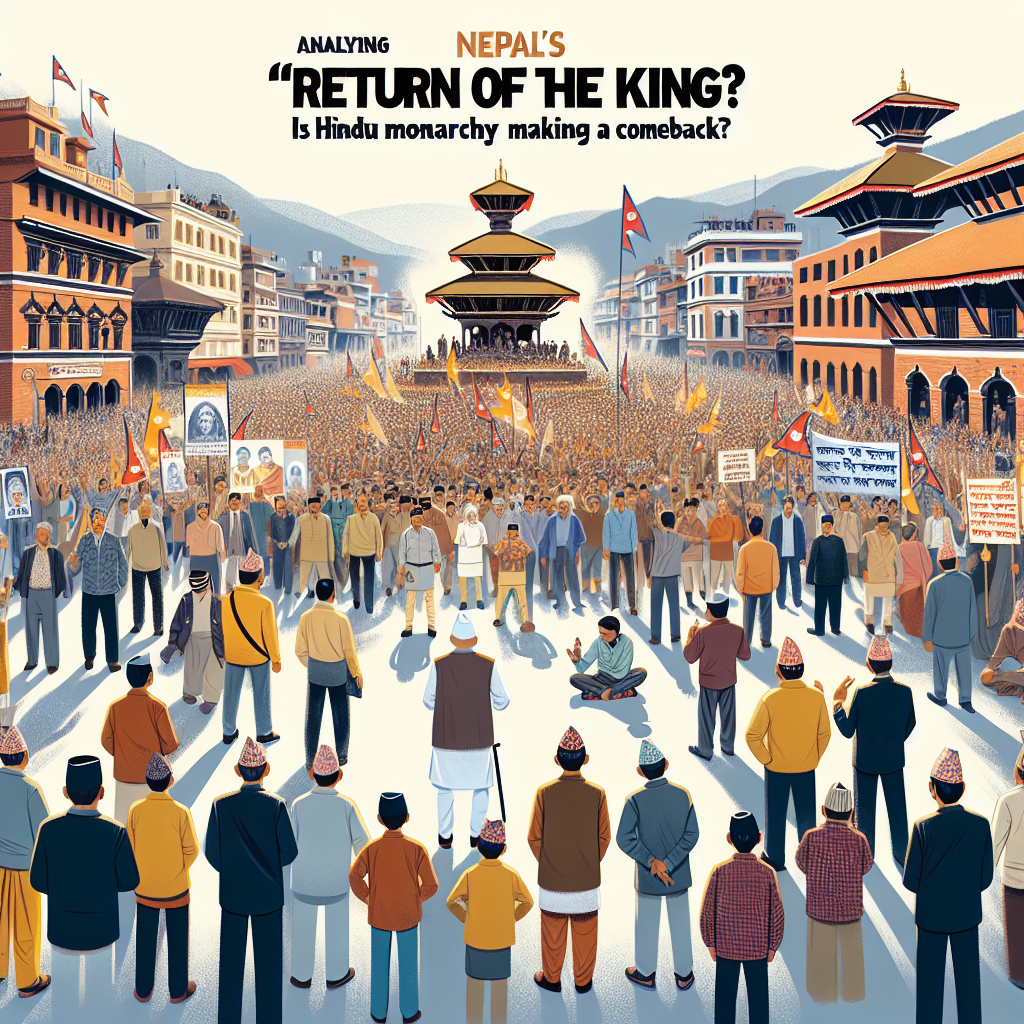NDTV Analyzes Nepal’s ‘Return Of The King’ Movement: Is Hindu Monarchy Making a Comeback?
NDTV Analyzes Nepal’s ‘Return Of The King’ Movement
Introduction: A Resurgence of Monarchical Sentiment
In recent times, Nepal has witnessed a growing movement advocating for the return of the Hindu monarchy. This development has sparked widespread debate and analysis, with NDTV delving into the factors driving this resurgence and its potential implications for the country’s political landscape.
Key Drivers Behind the Movement
- Discontent with Current Governance: Many Nepalese citizens express dissatisfaction with the current political system, citing inefficiencies and corruption.
- Cultural and Religious Identity: The monarchy is seen by some as a symbol of Nepal’s Hindu identity, which they feel has been eroded in recent years.
- Nostalgia for Stability: Some citizens recall the monarchy as a period of relative stability and unity, contrasting it with the perceived chaos of the current political climate.
Public Sentiment and Political Dynamics
The movement has gained traction among various demographics, including younger generations who did not experience the monarchy firsthand. Political parties are divided on the issue, with some supporting a constitutional monarchy while others firmly oppose any return to royal rule.
Potential Implications for Nepal
- Political Realignment: A shift towards monarchy could lead to significant changes in Nepal’s political alliances and power structures.
- Impact on Secularism: Reinstating a Hindu monarchy may challenge Nepal’s secular framework, affecting religious minorities.
- Regional Relations: The movement could influence Nepal’s diplomatic relations, particularly with neighboring countries like India and China.
Conclusion: A Nation at a Crossroads
The ‘Return Of The King’ movement in Nepal highlights a nation grappling with its identity and governance. While the monarchy’s return remains uncertain, the debate underscores deep-seated issues within Nepal’s political and cultural fabric. As the movement evolves, it will be crucial to monitor its impact on the country’s future direction.
















